Jakarta, 9 Rabiul Akhir 1437/19 January 2016 (MINA) – The bomb blasts and shoutout that occurred last Thursday at a Starbucks coffee shop and a police station in Jalan Thamrin, near the Sarinah business area, Central Jakarta, seemed not to have long term impacts among Indonesians.
The bloody incident that led to eight persons dead including four attackers and 26 injured was immediately spread to the social media and inspired many people to take actions to fight terrorism, Antara News quoted by Mi’raj Islamic News Agency (MINA) as reporting.
Despite the sympathy and courageous words expressed through the hashtag #KamiTidakTakut (We Are Not Afraid), #JakartaBerani (Jakarta Brave), and #PrayForJakarta on Twitter, media social users also uploaded some interesting facts and unique memes related to the attack.
One meme, which has widely spread, was a picture capturing a satay seller who remained serving his customers amid the crowds and chaos at the scene.
Also Read: Indonesia Elected as Member of UN Board of Auditors for 2026–2032 Term
“We are not afraid! We keep selling satay,” was the memes caption.
Also using food as a tool to stand up to terrorism, 12 faith-based youth organizations, in cooperation with the NGO Search for Common Ground (SFCG) Indonesia, held a culinary festival in Bekasi, West Java, last Sunday.
“We chose culinary as a theme because food is a medium that can unite people. We believe that terrorism must be confronted through the unity of society and more peaceful actions,” Program Coordinator of SFCG Indonesia, Hardya Pranadipa, said in a written statement.
Through an event entitled “Festival Kuliner Lintas Iman” (Interfaith Culinary Festival), visitors were invited to learn about Indonesian culture and traditions by tasting various foods and beverages from many ethnic groups in the country.
Also Read: Palestine Solidarity Month 2025: AWG and Indonesian Parliament Hold “Solidarity Run for Palestine”
People could also explore the deeper meaning of “Have you eaten yet?” which usually is said by Indonesians to their families or friends.
“That phrase showed us that food became the symbol of attention, unifying, and remained far from suspicion. In this case, taste of the food was a universal value that knew no boundaries of human identity,” Hardya said.
Through the culinary festival, the public was expected to increase mutual dialogue, eliminate mutual mistrust, and strengthen their unity.
Another event to be taken into account was when 10 divers of #bicaraSurabaya community unfolded banners with the words of #KamiTidakTakut and #SaveIndonesia at Situbondo sea, East Java, last Sunday.
Also Read: Online Gambling Transactions Drop 57% Following PPATK–Kominfo Crackdown
“This action was aimed to condemn the bombing in Jakarta, last Thursday,” the coordinator of the dive, Gunarto, stated.
The dive was held at the Situbondo white sand beach, which is also a popular tourism site in the province.
Thousands of visitors who were present on the beach appreciated the solidarity shown by participants.
The white banners with the red-white flag of Indonesia which were stretched inside the sea was claimed as proof that Indonesians were not afraid of any act of terrorism.
Also Read: 369 Youth Trained by Religious Affairs Ministry as Peer Educators to Prevent Child Marriage
“We need to promote our unity through holding each other’s hands to ensure that Indonesia is a strong state which gives no place for terrorism. We need to echo the resistance towards terrorism and spread the spirit of bravery to people all around the world,” Gunarto said.
Anti-terror Response
Social psychology expert from Universitas Gadjah Mada (UGM), Yogyakarta, Faturochman appraised such memes and actions made by the Indonesian people, calling it an insurgency or anti-terror response, following the recent tragedy.
“It did not mean that we were not sensitive, but it showed the consciousness that we need to fight against terrorism,” he said.
Also Read: Indonesia Ready to Contribute to Gaza Peace Mission
Anti-terror acts could be delivered in various ways, for those who did not have weapons, making a joke could be the best choice.
Moreover, people were also driven by the chain messages asking them not to spread the picture of the victims or the scenes, because it would be proof of how successful the perpetrators were when they carried out their attacks.
When people saw or heard about the bombings, they would be afraid, at first, and then become confused. Later, they would have the desire to know more and learn what actually happened.
Their analysis led them to the conclusion that the incident was not humane.
Also Read: BSP 2025: AWG Sends Team for “1,000 Mountain Climbers for Palestine” Expedition
In psychology, that process was known as the regulation of emotion. People tend to mix a stimulus in their minds that would be impacted with their next emotions.
“For example, they felt afraid, at first, but later they would see the incident in a ridiculous way. Interestingly, they were motivated not to let themselves be overwhelmed by terror,” Faturochman said.
The jokes that were delivered in a smart way, and others in a insensitive way, represented that people have different terror management techniques.
“They mocked the terrorists, that was the way they responded,” he said.
Also Read: Indonesia’s Economy Grows 5.04% in Q3 2025: Statistics Indonesia
According to Faturochman, the Indonesian people have a different character, compared to their European or American counterparts.
“Indonesians are easy going,” he said.
Moreover, people generally do not know the operation standards and what they should do when facing disasters or incidents. That was why many people clustered near the scene.
“Bringing themselves closer to the scene could also be triggered by the desire to give help,” Faturochman stated.
Although people seem to have their normal daily lives back, the Indonesian police are doing more investigations and improving their security.
On Saturday, the police announced the names of the perpetrators who died at the scene, including Sunakin alias Afif, Muhammad Ali, Ahmad Muhazin, and Dian Joni Kurniadi.
The tragedy also claimed the lives of civilians Rico Hermawan and Rais Karna of Indonesia, and a Canadian, Amel Quali Taher, and Sugito.
Additionally, the National Terrorism Countermeasure Agency, or BNPT, announced that many regions in Indonesia have become potential headquarters of the radical movement. These included Jakarta, West Java, Central Java, East Java, Kalimantan, and Sulawesi, as well as Maluku.
Also Read: Indonesian Sets Hajj Travel Schedule, Departures to Begin April 21, 2026
The Chief of BNPT, Saud Usman, noted that the perpetrators can find fertile grounds in conflict areas, particularly in eastern Indonesia.
The security institutions are now taking immediate measures, following the attack in Jakarta, by detaining certain people suspected of terrorism.
The Anti-Terror 88 Special Detachment teams arrested a number of persons on Friday in Depok, Bekasi, and Cirebon in West Java Province.
The team also detained several people accused in Tegal in Central Java Province and Balikpapan in East Kalimantan Province. (T/P010/R03)
Also Read: Saudi Launches Nusuk Platform; Indonesia Prepares System Integration for Independent Umrah
Mi’raj Islamic News Agency (MINA)








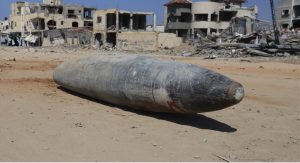

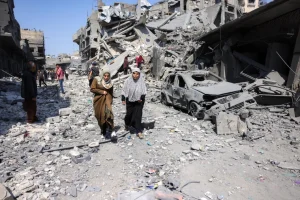
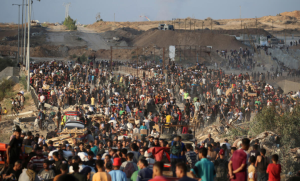
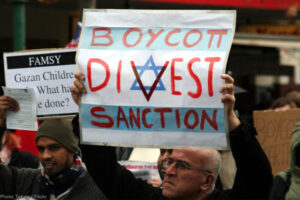








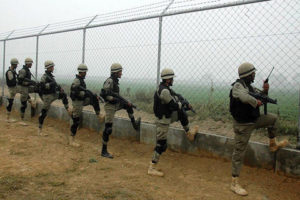




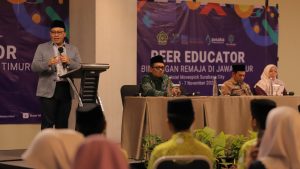


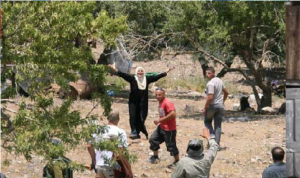





 Mina Indonesia
Mina Indonesia Mina Arabic
Mina Arabic